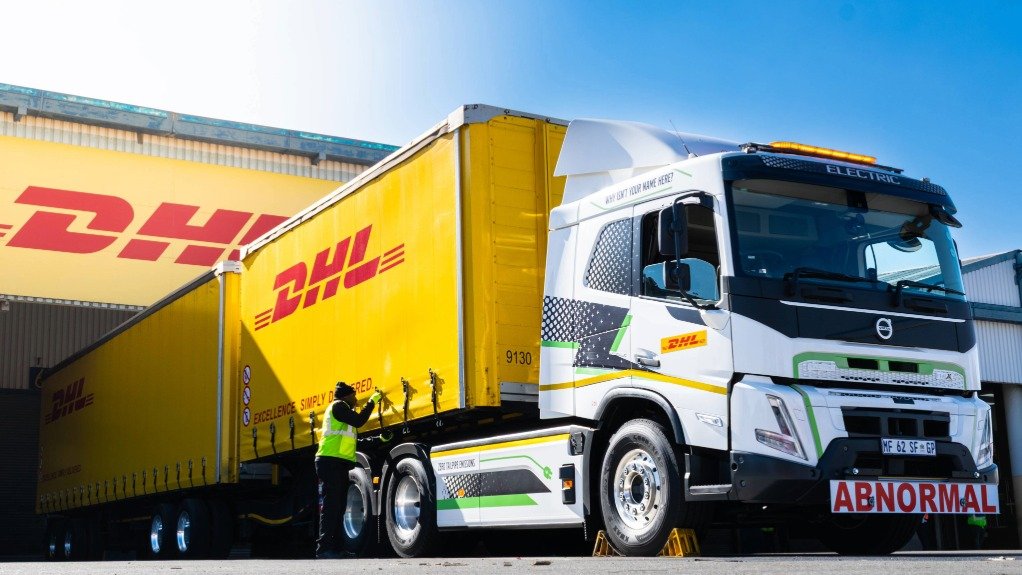DHL Supply Chain has launched an electric vehicle (EV) pilot project in collaboration with Unilever and Volvo Trucks South Africa.
The initiative involves deploying a fully electric Volvo FMX 6 x 4 tractor with a curtain-sided 18-m superlink double trailer to support consumer goods company Unilever’s supply-chain operations.
The project’s main goal is to evaluate the performance, sustainability benefits and economic viability of EVs compared with traditional diesel-powered vehicles, particularly within Africa’s developing EV infrastructure environment.
The electric tractor used with the superlink will operate along standard logistics routes, and will be charged using infrastructure supplied by Aeversa at existing Unilever facilities for the duration of the pilot project.
DHL says its long-term objective is to transition to renewable energy for charging, further improving the electric truck’s carbon footprint in future deployments.
Data from the trial will be benchmarked against DHL’s existing Euro 5 diesel fleet and could potentially accelerate the broader adoption of electric trucks within DHL’s operations across Africa.
“While limitations remain in scaling EV solutions, strategic partnerships like this enable us to test and capitalise on the technologies available today, proving that low-carbon logistics can be possible, even in emerging markets,” says DHL Supply Chain Africa MD Bremer Pauw.
“As part of our sustainability commitment, we have proactively introduced cleaner transport solutions, including assembling Euro 5 trucks locally ahead of regulation,” notes Volvo Trucks South Africa sustainable solutions senior manager Eric Parry.
“This pilot reflects our belief that collaboration is key to accelerating Africa’s transition to sustainable freight transport.”
“Unilever is committed to achieving net-zero emissions across our operations by 2039,” adds Unilever South Africa national transport manager Simphiwe Dlamini.
“Collaborations such as this pilot…are crucial steps toward reaching our sustainability objectives, enabling us to test and implement innovative transportation solutions that foster a greener supply chain.”
![]()






